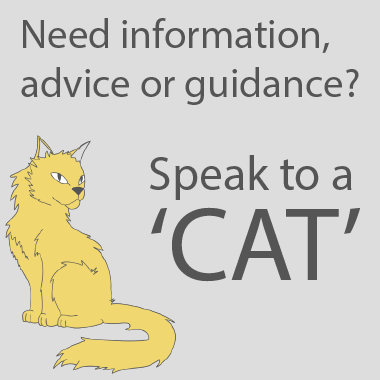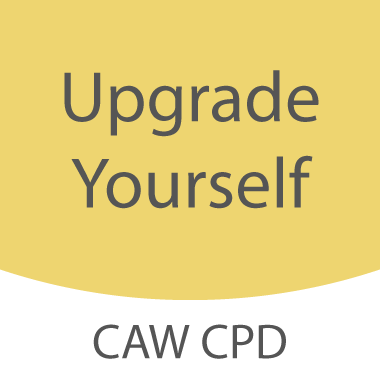Course Overview
The VetSkill Level 2 Certificate in Veterinary Care Support (VCS) is an online course that can be undertaken alongside employment, or voluntary work, in a veterinary practice. The course is ideal for those looking to gain a formal qualification in veterinary care, whilst training with qualified professionals in a veterinary practice.
All materials related to the course are delivered via distance learning on our Virtual Learning Environment (VLE), therefore you will not need to attend College in order to complete your studies. As such this course can be taken anywhere in the UK or overseas, subject to local veterinary laws.
By choosing to study with The College of Animal Welfare – one of the largest providers of veterinary care training in the UK – you are joining a community of like-minded students and staff, who all share a passion for animal welfare.
In addition to the academic theory you will gain from online study, an emphasis on practical experience (a minimum of 600 hours) in a veterinary practice means that you will gain the skills and knowledge needed to prepare you for a career in the veterinary care profession.
Please note: The veterinary practice you are working or volunteering in does not need to be an RCVS training practice.
Key Facts
- Attendance: Course materials will be supplied via our online Virtual Learning Environment (VLE) and you will be allocated a distance learning tutor who will support you throughout the course; therefore you will not be required to attend college.
- Duration: 12 months.
- Start Date: This programme can be started at any time.
- Location: This online distance learning programme can be studied anywhere in the UK or overseas, subject to local veterinary legislation.
This qualification, in combination with a full level 2 qualification in Maths and English (e.g. GCSE Grade A*-C or Level 2 Functional Skills), will allow you to apply for the Level 3 Diploma in Veterinary Nursing or the Veterinary Nurse Level 3 Apprenticeship programme.
Course Content
Over the course of the qualification, you will undertake the following units, which will cover the relevant practical skills and underpinning knowledge needed to provide a good level of support to the veterinary nurse and veterinary surgeon.
- Legislation and Safe Working Practices
- Animal Health and Welfare
- Animal Environment and Accommodation
- Introduction to Patient Care
- Introduction to Animal Anatomy and Physiology
- Veterinary Care Support
Assessment
Each unit is assessed by portfolio. The portfolio will assess knowledge, skills and behaviours, to cover all learning outcomes in the qualification.
Entry Requirements
There are no formal academic entry requirements, however you must fulfill the following criteria:
- Be volunteering or employed within a clinical role in a veterinary practice for a minimum of 10 hours per week for the full duration of your course
- You may be asked to provide a reference from a veterinary surgeon or veterinary nurse supporting your application and confirming you have completed a minimum of three months* of regular employed or voluntary work (for a minimum of 10 hours per week) prior to starting the programme, ideally in the practice you will be undertaking the qualification
- Have a dedicated mentor agreed within your practice
- Be competent in reading, writing and speaking the English language as all course materials and assessments are delivered in English
- Complete a pre-course interview
You can undertake this course by either volunteering or by being employed within a veterinary practice on a part-time or full time basis as follows:
- Part time – you will need to be working, or volunteering, in a veterinary practice, for a minimum of 10-15 hours a week and the course should take a maximum of 18 months to complete
- Full time – you will need to be working, or volunteering, in a veterinary practice, for a minimum of 30 hours a week and the course should take a maximum of 12 months to complete
*we are looking to ensure you are committed to attending practice and are fully aware of what a veterinary care role entails
Please note: As our courses include online learning components, students are required to have access to a PC or laptop with a reliable internet connection.
Course Fees
Course fees can either be paid in full before the beginning of the course, or via our ‘Pay As You Learn’ monthly payment scheme. A CAW Loans2Learn scheme is also available, details can be found below.
If you have not achieved your qualification by the planned end date detailed in your individual learning plan, you will be able to continue to receive support and access to your course by paying monthly direct debit payments until certification of your award.
Course Fees
| Country |
Full Fee |
Pay As You Learn |
| UK |
£1,750 |
£145 per month |
| Overseas |
£2,375 |
£175 per month |
Awarding Body Fees*: £135
* Awarding Body Fees are payable by all students or employers and recharged at cost and may be subject to change.
Save 50% off of the VetSkill Level 2 Certificate for Veterinary Care Support course fee if you study it alongside the Veterinary Care Support: Level 2 Apprenticeship (Awarding Body fees still apply).
CAW Loans2Learn Scheme
The CAW Loans2Learn scheme is a personal loan that can help you to spread the cost of your course into manageable payments. The loan can be used to fully or partially cover your course fees (but does not cover any awarding body fees, such as enrolment and examination fees). More information can be found here.
Sources of financial help can be found on our student finance page. Before making any financial decision it is recommended that you seek advice from an independent source, for example the Money Advice Service.
These are current figures and may be subject to change.





